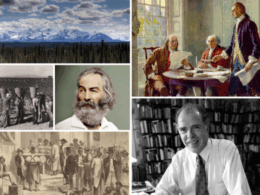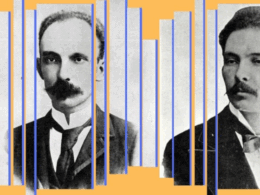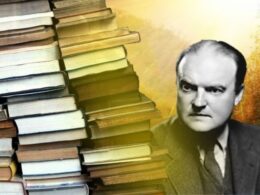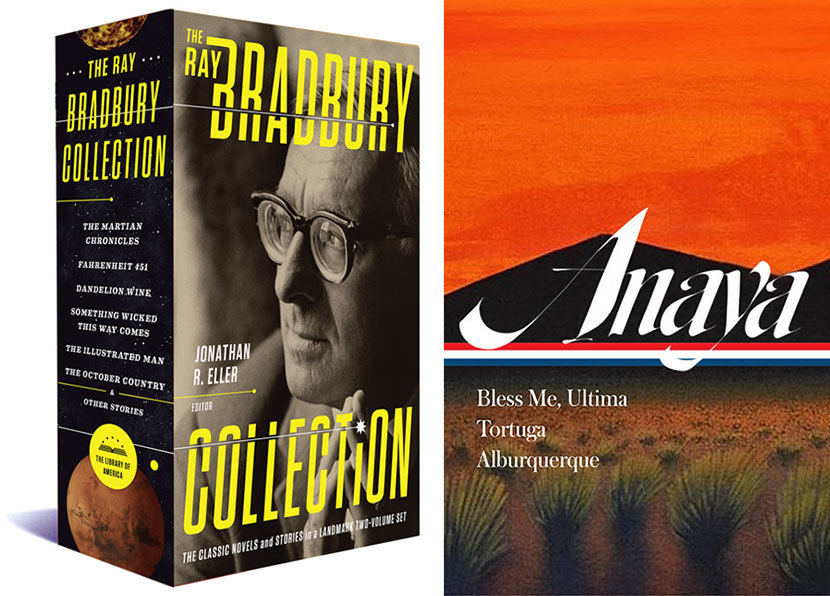
As we celebrate our fortieth anniversary year we offer this look ahead to what’s coming for Fall 2022, including the inaugural volume in a new edition of one of the most admired and influential American novelists of the last half century; urgently needed reflections on the defining political problem of our time by a legendary writer and political theorist; a major reckoning with Latino literature; a sequel collection of visionary science fiction stories by women; and further volumes in our editions of two mid-century masters.
Refer to the list below for details about contents and publication dates for our fall releases. Fuller descriptions of each new title appear after the list.
(Please note: Because of ongoing supply chain issues, several Library of America volumes that were previously announced for Spring 2022—Gary Snyder: Collected Poems, Charlotte Perkins Gilman: Novels, Stories & Poems, Frederick Douglass: Speeches & Writings, and Bruce Catton: The Army of the Potomac Trilogy—have been delayed until the latter half of the year. Visit our most recent “Forthcoming” post for a full description of each of those books.)
LIBRARY OF AMERICA SERIES
Rudolfo Anaya
Bless Me, Ultima, Tortuga, Alburquerque
Luis Alberto Urrea, editor
Library of America #361 / ISBN 978-1-59853729-1
September 2022
Oscar Hijuelos
The Mambo Kings & Other Novels
Our House in the Last World • The Mambo Kings Play Songs of Love • Mr. Ives’ Christmas
Lori Carlson-Hijuelos and Laura P. Alonso-Gallo, editors
Library of America #362 / ISBN 978-1-59853730-7
September 2022
Ray Bradbury
The Illustrated Man, The October Country & Other Stories
Jonathan R. Eller, editor
Library of America #360 / ISBN 978-1-59853728-4
October 2022
Don DeLillo
Three Novels of the 1980s
The Names • White Noise • Libra
Mark Osteen, editor
Library of America #363 / ISBN 978-1-59853-733-8
October 2022
Norman Mailer
The Naked and the Dead & Selected Letters 1945–1946
J. Michael Lennon, editor
Library of America #364 / ISBN 978-1-59853-743-7
January 2023
SPECIAL PUBLICATIONS
On Lying and Politics
Hannah Arendt
Introduction by David Bromwich
Paperback • ISBN 978-1-59853-731-4
September 2022
The Future Is Female 2!
25 Classic Science Fiction Stories by Women Writers of the 1970s
Lisa Yaszek, editor
ISBN 978-1-59853-732-1
October 2022
BOXED SET
The Ray Bradbury Collection (two-volume boxed set)
ISBN 978-1-59853-740-6
October 2022
Considered the father of Chicano literature, Rudolfo Anaya broke new ground with Bless Me, Ultima (1972), a mythic novel that captures the richness and complexity of history, community, and place in the American Southwest. Set just after World War II in eastern New Mexico, Bless Me, Ultima revolves around the young boy Antonio and his quest to understand his identity and the prospects for his future. Although his mother expects him to become a Catholic priest, Antonio is drawn to the charismatic Ultima, an elderly curandera or healer who embodies wisdom stretching back to the pre-Columbian past and is linked to the primal forces of nature. Antonio’s discovery of who he is unfolds through a riveting story and Anaya’s unforgettable poetic language. Two of Anaya’s later novels reveal his continued sensitivity to the subtleties of identity and the pull of the Rio Grande Valley on its people. Tortuga (1979), which draws on his own experience of suffering and recuperation after a diving accident as a teenager, is set in a rehabilitation center for disabled children and explores the realities of bodily pain and the obligations we owe to one another. And in the 1992 novel Alburquerque (restoring the original “r” that was removed from the city’s name), a young boxing champion discovers that his white biological mother had given him up for adoption at birth, spurring him to reevaluate everything he had thought himself to be. His own steps toward self-knowledge are dramatized within a larger tale about the fate of his city. Characteristically fusing emotionally powerful characterizations, political commentary, humor, and lyrical writing, Anaya reveals himself to be an indispensable American fabulist.
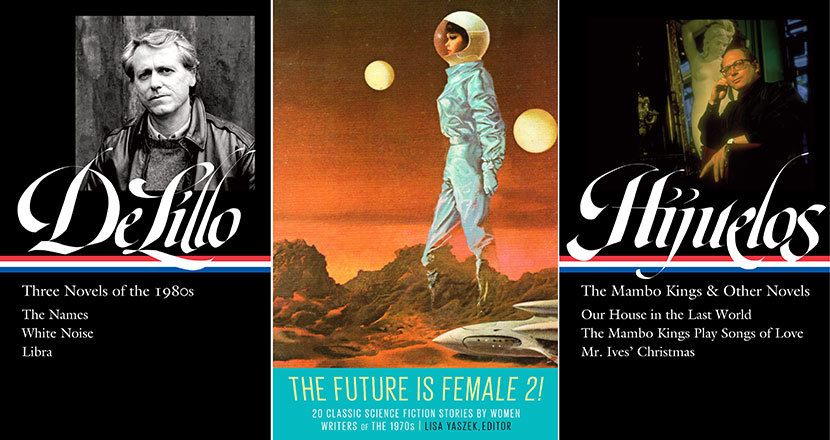
Another pioneering Latino novelist, Oscar Hijuelos, wrote about Cuban Americans in ways both celebratory and elegiac. Hijuelos launched his career with Our House in the Last World (1983), a resonant and nuanced novel relaying one immigrant’s family story in midcentury Manhattan. At its center is Hector Santino, whose family has left the “home province of Fidel Castro, Batista, and Desi Arnaz” to settle in New York City, where their ebullient expectations of the good life in America lead, inevitably, to myriad disappointments and adjustments. In his best-known novel, The Mambo Kings Play Songs of Love (1989)—a book that Gabriel Garcia Marquez said he would have liked to have written—Hijuelos offers an unforgettable tribute to Latin music and its place in American culture in the middle of the twentieth century. Earning Hijuelos the Pulitzer Prize (the first to be awarded a Latino novelist), The Mambo Kings is also about the fleeting nature of fame and celebrity as well as the more profound themes of love, desire, and family. The poignant Mr. Ives’ Christmas (1995), which Hijuelos once noted was an attempt to write a Christmas story “without being corny,” takes up themes of loss and redemption in a story that poses the age-old question of why bad things happen to good people. This Library of America edition will also include a newly researched chronology of the author’s life.
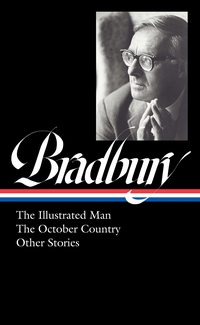
The author of over 400 short stories, Ray Bradbury was a master not only in the science fiction genre but also in horror and dark fantasy. The Illustrated Man, The October Country & Other Stories unites two of Bradbury’s most beloved collections, along with twenty-seven other stories, that together represent the best of his stories of the 1940s, ’50s, and ’60s. The Illustrated Man—the more Earthbound science fiction companion to Bradbury’s classic collection The Martian Chronicles—contains eighteen stories bound together by the unifying metaphor of a strangely tattooed outcast. The stories explore both the dehumanizing possibilities of space-age technology—in “The Veldt” and “The Rocket Man”—and the pessimistic, dark side of humanity, as in “The Visitor.” The October Country collects nineteen macabre and fantastic tales in an edition that restores the original artwork by Joe Mugnaini. “Uncle Einar” and “Homecoming” concern the monstrous and immortal Elliott family, and in “Touched with Fire,” two old men have learned to predict future murders. Joining these are twenty-seven short stories from the first half of Bradbury’s career, masterpieces including “Frost and Fire,” in which human beings on another planet live only eight days, and “The Pedestrian,” about the only man in the world who doesn’t watch television. Also included are such hard-to-find stories as “Asleep in Armageddon,” and “The Lost City of Mars.” Bradbury’s biographer Jonathan R. Eller provides a newly researched chronology of the author’s life and invaluable explanatory notes. (The Illustrated Man, The October Country & Other Stories will also be paired with the last year’s Ray Bradbury: Novels and Story Cycles in an attractive new boxed set.)
Whether writing about the John F. Kennedy assassination, environmental disaster, or the shadowy links among intelligence agencies and global corporations, Don DeLillo has held up a mirror to a contemporary reality shot through with secrets, distortions, and plausible conspiracies. Don DeLillo: Three Novels of the 1980s, the first DeLillo volume in the LOA series, presents three indispensable novels, published here with newly written prefaces from the author. DeLillo’s 1982 breakthrough The Names (1982) took his work to new levels of intensity and power and, as he reflects here, spanned a “broader expanse” than his earlier novels. James Axton, a “risk analyst” tasked with assessing dangers for his corporate clients from terrorism and other forms of political upheaval, uncovers evidence of ritual murders committed by a cult obsessed with ancient languages. The investigations of these crimes, which takes Axton on a quest from Athens to Jerusalem and to villages across the Middle East, yields a profound series of meditations on identity, disconnection, and the nature of language itself. The National Book Award–winning White Noise (1985) creates a terrifying yet wickedly funny portrait of a postmodern America that is still recognizably ours, a world where children chant brand names in their sleep, university professors “read nothing but cereal boxes,” and “you are the sum of your data.” Jack Gladney, a professor of Hitler Studies living with an imperfectly blended family in a middle American college town, finds himself a temporary refugee when a Bhopal-like “airborne toxic event” causes the town’s evacuation. Part campus satire, part midlife character study, and part fever dream of a hyperreality that has become uncannily familiar, the novel is DeLillo’s enduring depiction of a civilization whose banalities seem apocalyptic, and vice versa. Three years in the research and writing, Libra (1988) offers a magnificent counter-history of the JFK assassination and a nuanced portrait of the president’s murderer. DeLillo has observed that “the novel, working within history, is also outside it, correcting, clearing up, finding balances and rhythms.” The result is a revelatory new depiction of a defining event in twentieth-century history. Library of America’s inaugural DeLillo volume also includes two hard-to-find essays directly related to the novels: “American Blood,” the 1983 Rolling Stone article that was DeLillo’s first effort to grapple with the JFK assassination, and “Silhouette City,” an assessment of extremist right-wing groups and the troubling presence of neo-Nazism in the United States. DeLillo joins Wendell Berry, Maxine Hong Kingston, and Gary Snyder as the only living writers in the Library of America series.
To commemorate the centennial of Norman Mailer’s birth and the seventy-fifth anniversary of the publication of his blockbuster debut, The Naked and the Dead & Selected Letters 1945–1946 will include not only the novel itself but a selection of twenty-three letters (all but four from Mailer to his first wife, Beatrice) written during his wartime service and its immediate aftermath. The Naked and the Dead, nearly universally praised upon its publication in 1948 as an achievement inviting comparison with Tolstoy, is not just a monumental war novel but also a powerful antiwar novel that engages with the nature of power, the conflicts within a massive bureaucracy like the American military, and the imperialist and authoritarian urges present on the American side as the Cold War was about to emerge. It draws heavily and ambitiously on literary precedents such as Dos Passos’s U.S.A. trilogy and Melville’s Moby-Dick. Its influence can be detected in near-contemporary novels such as From Here to Eternity and onward through Joseph Heller’s Catch-22 and war novels by Tim O’Brien and Denis Johnson.
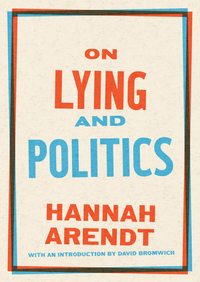
“No one,” Hannah Arendt observed, “has ever counted truthfulness as a political virtue.” But why do politicians lie? What is the relationship between political lies and self-delusion? And how much organized deceit can a democracy endure before it ceases to function? Fifty years ago, the century’s greatest political theorist turned her focus to these essential questions in two seminal essays, brought together in On Lying and Politics for the first time. Her conclusions, delivered in searching prose that crackles with insight and intelligence, remain powerfully relevant, perhaps more so today than when they were written. In his introduction to this compact paperback edition, critic and scholar David Bromwich engages with Arendt’s essays in the context of her other writings and underscores their clarion call to take seriously the ever-present threat to democracy posed by lying.
A long time ago, in a galaxy not that far away, the writing of science fiction (so the story goes) was dominated by men, or what Ursula K. Le Guin once described as a “baboon patriarchy,” and its female characters were figments of adolescent fantasy, awaiting rescue in bronze brassieres, to be mansplained to about rocketry and ray guns. Now cut to the 1970s––the coming-of-age decade from which the twenty-five stories gathered in The Future Is Female 2! emerged––when all that changed, in the brave and compelling visions of feminist writers like Joanna Russ, Octavia E. Butler, Lisa Tuttle, Vonda N. McIntyre, and more. Not only winning Hugo and Nebula awards and the assent of the male SF establishment (“the best writers are the women,” Harlan Ellison conceded), these brilliant pioneers invented worlds that helped us see beyond the timebound battles of the sexes on our own. Sometimes writing as men––as in the case of James Tiptree Jr., the “ineluctably masculine” but gender-bending and secretly female breakout star of the decade—but no longer writing for or all about them, these now-classic rebels and experimentalists looked forward to futures far beyond us even now, in stories that continue to provoke and inspire. Like its predecessor, The Future Is Female 2! is edited and introduced by Lisa Yaszek, a leading authority on classic women’s science fiction, and will feature new biographical notes on the writers included.
